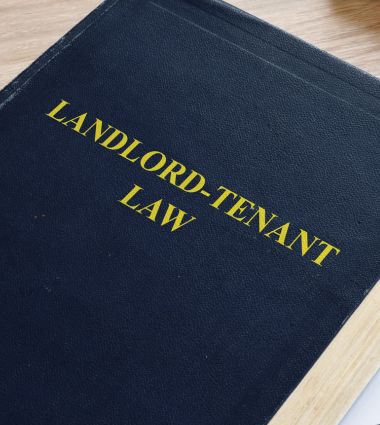Understanding Your Mortgage Agreement Made Simple for Homebuyers
Buying a home is a big deal, but let’s be real, mortgage agreements? Not exactly fun to read. They’re full of legal terms, fine print, and clauses that can feel overwhelming. But those details matter because they can shape your finances for years. The last thing you want is to sign something now and regret it later.
This guide breaks down the key parts of a mortgage agreement in plain English, so you’ll know exactly what you’re agreeing to — no surprises, no second-guessing.
1. Loan Amount and Interest Rate: What You’re Actually Borrowing
At its core, a mortgage is a loan. The loan amount is what you’re borrowing from the lender, and the interest rate determines how much extra you’ll pay to borrow that money.
There are two main types of interest rates:
- Fixed-rate mortgage: Your interest rate stays the same for the entire term, making your payments predictable.
- Variable-rate mortgage: Your rate can change based on market conditions, meaning your payments could go up or down over time.
If you like stability, a fixed-rate mortgage might be better. If you’re okay with some risk in exchange for potentially lower rates, a variable rate could work. Either way, always check the fine print before choosing a mortgage — some lenders have penalties for switching between the two.
This is also where a real estate lawyer for mortgages is invaluable. They’ll review your mortgage agreement to check for clauses that might make switching rates costly or difficult. Some lenders include terms that lock you into high penalties if you want to break your mortgage early. A lawyer will flag these potential issues and explain your options so you can make a smart financial decision.
2. Amortization Period vs. Mortgage Term: What’s the Difference?
These two terms get mixed up a lot, but they mean different things, and knowing the difference can save you from financial surprises down the road.
Amortization period is the total time you’ll take to pay off your entire mortgage — usually 25 years in Canada. This affects how much interest you’ll pay over time.
Mortgage term is how long your current contract with the lender lasts — often five years, but it can be shorter or longer. Once the term ends, you’ll need to renew, renegotiate, or switch lenders.
Think of it like a gym membership. The amortization period is your long-term goal — staying fit for 25 years. The mortgage term is the actual membership plan — you might commit to five years and then decide whether to renew, switch, or change the terms.
A real estate lawyer in Toronto helps make sense of these timelines, ensuring you understand what you’re committing to. They can also flag any clauses that might limit your flexibility in the future, like penalties for switching lenders before your term is up.
Shorter mortgage terms can have lower interest rates but require renegotiation sooner, which might be good or bad depending on the market. Longer terms give you stability but may come with higher rates. A lawyer can help you weigh these options based on your financial situation and goals.
3. Prepayment Options: Can You Pay It Off Faster?
Many homebuyers want to pay off their mortgage early to save on interest, but lenders don’t always make it easy. Some mortgages allow extra payments, but there are rules and limits to watch out for.
- Some lenders let you increase your regular payments by 10-20% per year without penalties.
- Others allow lump-sum payments on certain dates, like the mortgage anniversary, to pay down the principal faster.
- Paying off your entire mortgage too early could result in hefty penalties, depending on the lender’s policies.
Before you sign, a real estate lawyer can go through your mortgage contract and explain your prepayment options. They can point out any hidden fees or restrictions that might make it harder to pay off your mortgage faster. Some contracts have vague language that makes it seem like prepayment is flexible, but in reality, there can be limits or penalties that aren’t obvious at first glance.
If you plan to make extra payments down the road, it’s better to clarify everything upfront. A lawyer can negotiate better terms with your lender so you don’t get stuck with unexpected costs later.
4. Penalties and Fees: The Costs You Don’t See Coming
Life is unpredictable. Maybe you need to move for a new job, refinance for a better interest rate, or pay off your mortgage faster than planned. Sounds great, right? Well, not so fast — your lender can have other plans. Mortgage contracts often come with penalties and fees that can cost you thousands if you're not prepared.
Some common ones to watch for:
- Prepayment penalties – If you pay off too much of your mortgage early, your lender could charge you a fee. Some allow extra payments (like 10-20% per year), but going over the limit can be costly.
- Breaking your mortgage early – Selling your home or switching to a different lender before your mortgage term ends usually comes with a penalty. Depending on your contract, this could be a flat fee or a percentage of your remaining balance.
- Late payment fees – Miss a payment? You could face extra charges, and repeated late payments can hurt your credit score.
How a Real Estate Lawyer Helps:
Your trusted legal help can review your mortgage contract before you sign, pointing out hidden fees and potential penalties. They can also help if you need to break your mortgage early, negotiating with your lender to reduce costs. If you're refinancing, they’ll make sure everything is handled legally, protecting you from unexpected charges.
Before signing anything, ask your lender about these fees. The last thing you want is a surprise bill when you least expect it.
5. Mortgage Default: What Happens If You Can’t Pay?
Nobody buys a home expecting to miss payments, but life doesn’t always go as planned. Job loss, medical emergencies, or unexpected expenses can put homeowners in tough situations. If you fall behind on your mortgage, here’s what happens:
- Late fees start adding up – Miss one payment, and your lender will charge a fee.
- Lender contact & warnings – If payments continue to be late, the bank will reach out to discuss your options.
- Legal action & foreclosure risk – After multiple missed payments, the lender can start the foreclosure process, meaning you could lose your home.
How a Real Estate Lawyer Helps:
If you're struggling to make payments, a real estate lawyer can step in before things get worse. They can negotiate with the lender to arrange a payment plan, explore refinancing options, or advise you on selling the home before foreclosure happens. If legal action has already started, they can represent you in court and work to delay or prevent foreclosure.
The best way to avoid mortgage default is to borrow within your means. A common rule is that your housing costs (mortgage, property taxes, utilities) shouldn’t exceed 35% of your income. And if you ever run into trouble, talk to your lender or a real estate lawyer right away — ignoring the problem will only make things worse.
6. Closing Costs: The Extra Expenses to Budget For
The down payment isn’t the only big expense when buying a home. Many buyers focus so much on saving for that upfront cost that they forget about closing costs — those last-minute fees that can add up fast.
Common Closing Costs:
- Land Transfer Tax: If you’re buying in Ontario, expect to pay this tax. If you're purchasing in Toronto, there’s an extra municipal land transfer tax on top of that.
- Legal Fees: A real estate lawyer ensures your paperwork is airtight, helps with title searches, and makes sure there are no legal surprises with the property.
- Home Inspection Costs: Even if the house looks great, an inspection can reveal hidden problems like faulty wiring or foundation issues.
- Title Insurance: This protects you if someone claims they have a legal right to your home after you've bought it. Your lawyer will usually recommend it.
These costs typically add up to 1.5-4% of your home’s purchase price, so it's smart to budget for them in advance.
Why a Real Estate Lawyer is Important
A home purchase is full of legal fine print, and that’s where a real estate lawyer comes in. They review the mortgage agreement, check for hidden fees, and confirm that all legal documents are in order before you sign. If there are any issues like unpaid property taxes from the previous owner or unexpected legal claims on the home, your lawyer will catch them before they become your problem.
Take Control of Your Mortgage
A mortgage is one of the biggest financial commitments you'll make. It’s not the most exciting thing to read about, but understanding your agreement can save you from costly mistakes and stressful surprises. If anything looks unclear, don’t hesitate to ask questions, whether it’s your lender, real estate lawyer, or even a financially savvy friend. The more you know, the more confident you’ll feel about your decision.
Real Estate
Family Law
Wills & Estates
Immigration
Join Our Mailing List.
Sign up with your email to receive our newsletter and stay informed about the latest legal developments and special offers.























































































